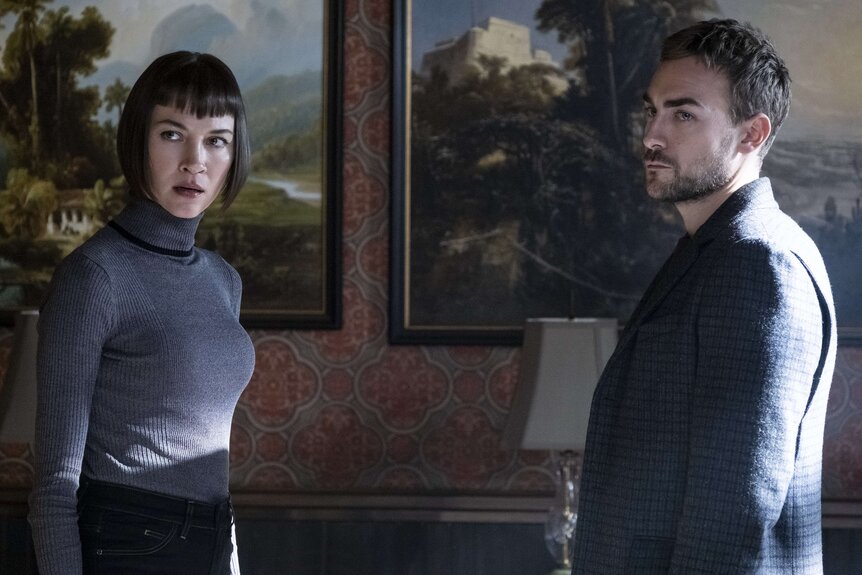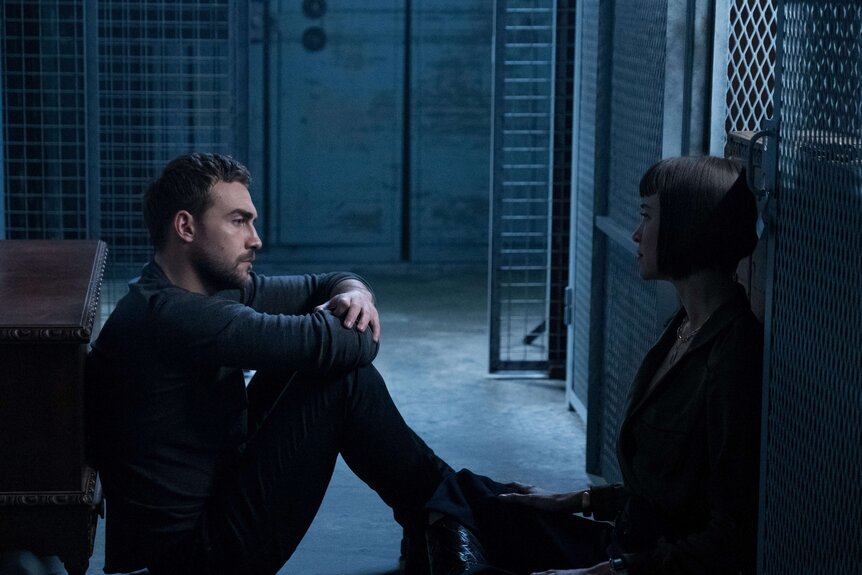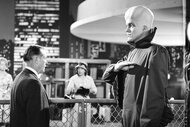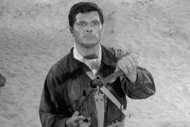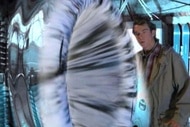Create a free profile to get unlimited access to exclusive videos, sweepstakes, and more!
Why Hulu's Ana Helstrom still matters in the Marvel Universe
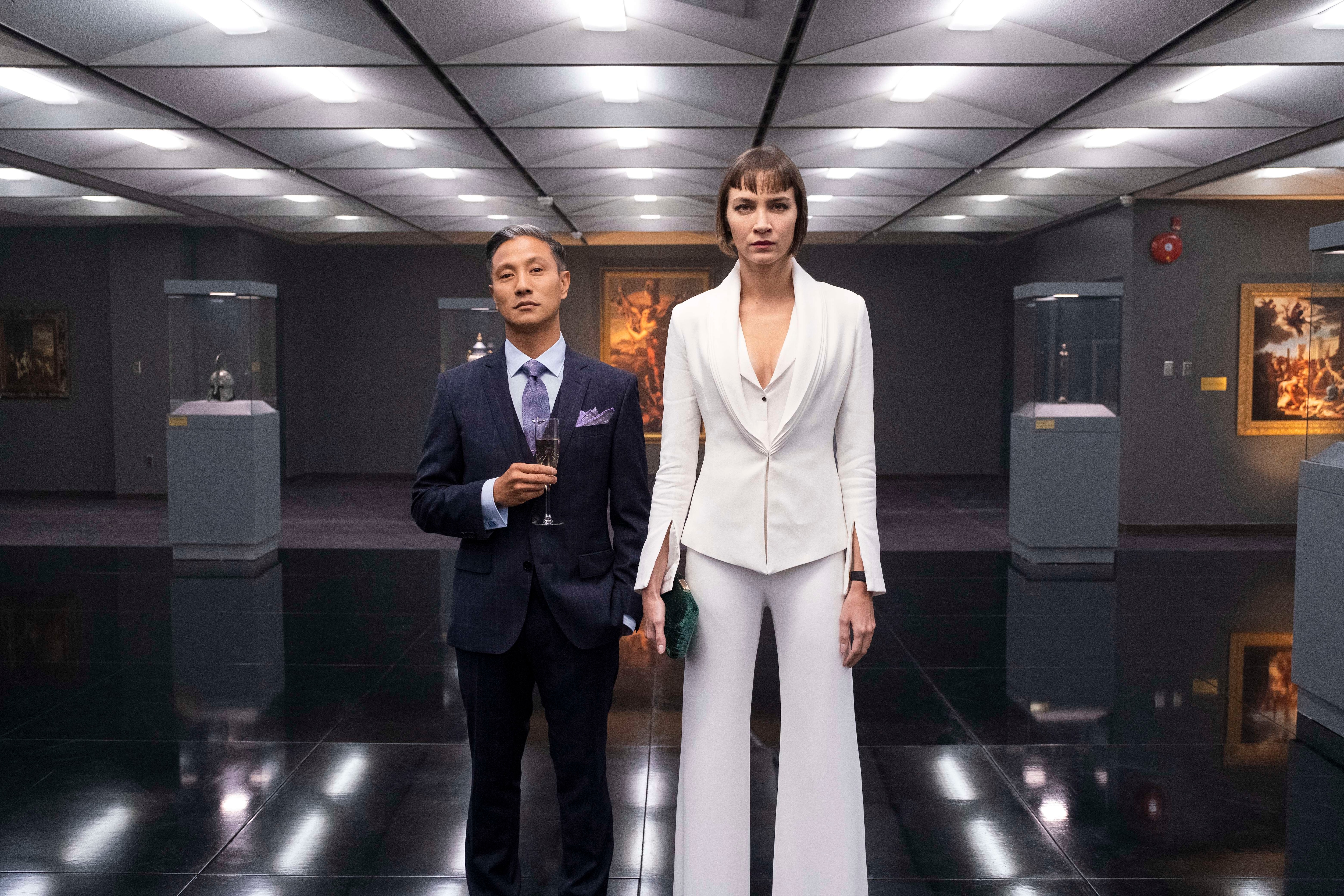
It's sad, but unfortunately true: Hulu's Helstrom isn't the series we all wanted it to be. The final installment from the original Marvel Television universe programming arm that gave us such rich and varied gems as Daredevil, Legion, and Cloak & Dagger turns out to be an absolute clunker, dull and generic in ways that are nearly impossible to describe.
That the show ultimately bears little resemblance to the comics on which it is theoretically based probably won't shock many fans; there was always going to be a limit to what any entity owned by Disney would ever be willing to do with a story about the literal son of Satan, after all.
But this Helstrom not only completely eschews the sort of deranged and colorful weirdness that was the hallmark of this corner of the Marvel comics universe, but it's also not even fun to watch as a standalone supernatural drama. From its drab aesthetic palette to its utter lack of humor, this is a singularly unambitious project that has almost nothing new to offer in terms of either compelling theological storytelling or entertaining scares.
The show ostensibly follows the story of Daimon Helstrom, a depressed sometime exorcist and ethics professor with poorly explained supernatural abilities of his own. He occasionally uses them to try and help his demon-possessed mother, Victoria, who's been locked away in an asylum since he was a child, or to attempt to work through his expansive set of daddy issues, courtesy of a nebulously identified serial killer father who also happens to be a powerful demon.
On the whole, this version of Daimon is fairly dull and uninteresting, a strange choice for a figure around which to anchor not just a series, but the entire Marvel sub-universe of horror series this show was originally supposed to help launch. (R.I.P.) Mercifully, that doesn't seem like a problem we'll be forced to deal with in the future. This is probably for the best — save for the fact that it most likely means we won't get to see more of Daimon's amazing sister, who not only is the show's best character but represents an important step forward for the Marvel on-screen universe as a whole.
It's clear from her first appearance that Ana Helstrom is by far the more interesting of the Helstrom siblings. Slinking onscreen sporting a slim-cut pantsuit and daringly asymmetrical hairstyle, she's immediately arresting, in a way that little else in Helstrom's world is. Her dark personal life, which apparently involves using her job as a semi-shady antiquities dealer as a cover to murder the sort of dark-hearted wealthy tech bros who want to own weapons that have taken part in genocides, is fascinating. And it gives her character the sort of complicated vigilante mindset that could honestly fuel a much more entertaining series on its own.
(And I would honestly rather watch that series, is what I'm saying.)
In the TV version of her story, Ana Helstrom is queer, fashionable, and furious. Still struggling to come to terms with a brutal childhood that saw her kidnapped by her father and used as a sometimes prop, sometimes accomplice while he committed violent crimes, she is a woman who is almost entirely powered by what appears to be constant, simmering rage. She has a deeply dysfunctional relationship with her brother and has never forgiven her mother for failing to regain her from her evil father's clutches.
Yet Ana is also Helstrom's most entertaining character, because her sarcastic, over-the-top demeanor somehow never falls into the realm of parody. (Props to actress Sydney Lemmon, who manages to do everything from saunter into a hotel lobby to throw a man off a roof with style.)
Ana's personality, which cannot be contained by anything as pedestrian as poor lighting or the dour gray color palette the show has chosen to represent “Portland," is instantly arresting, and her great outfits and biting commentary rapidly become a necessary bright spot in the world of the show. She's the sort of character we instantly want to know more about for her own sake — and not because of her connection to her mental patient mother or obviously-evil-but-in-a-poorly-defined-way father.
To an extent, the show itself realizes this, because Ana gets the bulk of its best lines and its most nuanced — to the extent that anything here is particularly layered — writing. And though she may not have a ton in common with her comics counterpart, Santana, a succubus raised in a Hell-dimension who can drain the souls of men, this Ana still manages to be interesting and fully compelling in her own right.
She's openly queer in a refreshing and aggressively matter-of-fact way that pretty much no characters in Marvel television have been before. She's smart enough to recognize the inner darkness she carries within her — but just twisted enough not to fear it, and often brave enough to embrace it. Much of her behavior — from her love of sarcasm at inappropriate moments to her deliberate flirting with Catholic novitiate nun Gabriella Rossetti — is gleefully transgressive in a way that female characters rarely get to indulge in on shows like this, and certainly never the queer ones.
Ana is important simply because she's the most prominent queer character in the MCU so far, eclipsing even Nico and Karolina from Marvel's Runaways, another Hulu property that has largely been treated as a tangential corner of the Marvel onscreen world (probably because stories about teen girls never get any respect in pretty much any genre). But she's memorable because she's one of the few Helstrom figures whose stories feel fresh and original. We want to know more about her — whether it's her history of vigilante murders, sketchy art dealings, or the rocky relationship with her own family. (How did she and Daimon find one another again? How did she and Chris start the whole killing-of-wealthy-criminals thing? I need answers!)
Her character doesn't always get the emotional depth she deserves — the show sometimes seems overly content to coast on Lemmon's stylish charisma when it should be striving to convey interiority. Nevertheless, Ana remains Helstrom's saving grace, the character whose presence at least justifies the rest of its existence — and the only part we'll be sad to lose.
